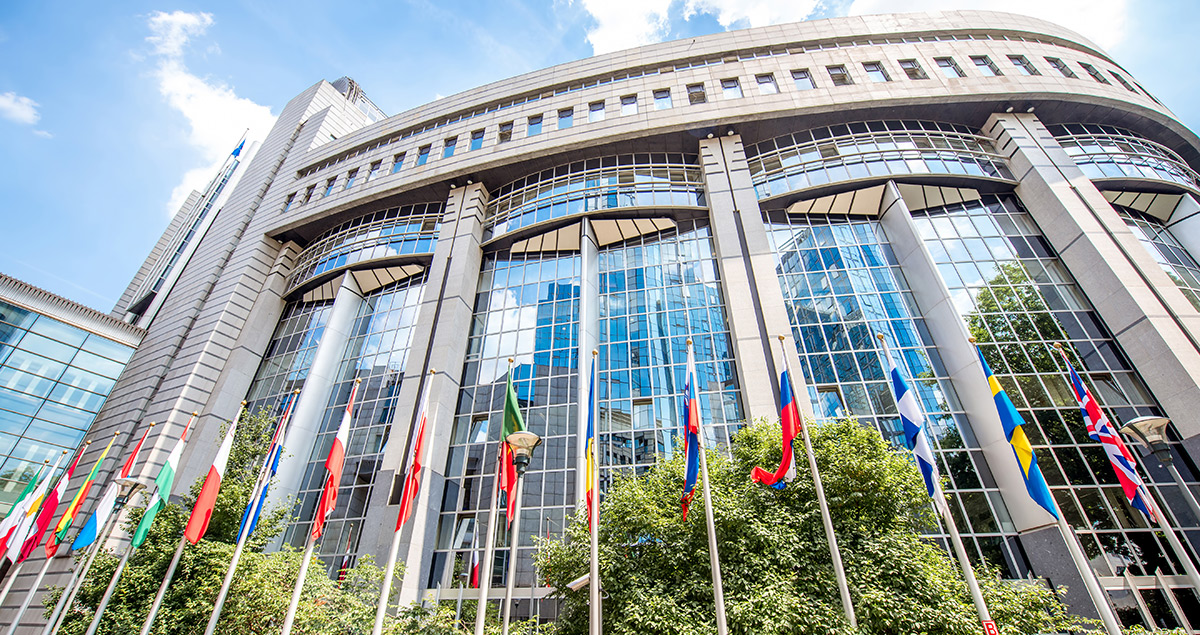Net-zero by 2050 goals need sustained action, says poll

The message from the annual gathering of the World Economic Forum in Davos was clear: getting to net-zero CO2 emissions by 2050 will require a concerted effort.
A survey by Mitsubishi Heavy Industries (MHI) Group held during the World Economic Forum’s Annual Meeting 2020 at Davos, both on site and online, has revealed uncertainty about the world’s ability to reach the Paris Agreement target.
35% of respondents said that it could be achieved, but 44% were not convinced.
However, the more than 1,800 respondents from around the world strongly pointed to technology investments as key to reaching the 2050 target. And they also stressed the importance of helping the heavy industry, energy and aviation sectors abate their CO2 emissions.
The need for scale
40% agreed that investment in new technologies would be the most powerful force in reaching this ambitious goal within 30 years – a call to action for the investment community.
While some technologies for renewable and carbon-free energy – such as offshore wind turbines and solar power – are already highly developed, others are still evolving. They need to be scaled quickly to become a viable alternative to fossil fuels.

Hydrogen is a good example. It is suitable for storing excess renewable energy, and can also be a replacement for fossil fuels in industry, power generation and transport. Many projects are already underway to test and scale this.
For instance, a Dutch initiative aims to create a ”hydrogen valley“, which will see carbon-free hydrogen produced from wind and solar power, injected into the natural gas network for home heating, and used as a fuel in road transport.
Securing funding to cover both capital and operational investments will be critical to accelerating the market readiness of such initiatives.
Power to the public and government
The survey results ranked public pressure as the second biggest driver on the road to carbon neutrality (23%). This may reflect the visibility of grassroots movements such as “Fridays for Future”, whose founder, Greta Thunberg, was at Davos to reiterate the need for climate action.
Respondents also put the onus on governments, given the proven importance of policy changes to the development of renewable energy solutions and reducing carbon emissions (15%).

To reach net-zero emissions, similar levels of support to those offered to the wind and solar sectors are now needed for other carbon-abatement technologies.
For instance, more than 50 countries around the globe are developing hydrogen policies. But alongside this, product labelling, carbon pricing, and carbon-aware public procurement can play an important role in stimulating demand for low-CO2 products.
<JSON="davos-poll-2020-edited">
Helping hard-to-abate industries
Most respondents (29%) stated that heavy industries would be the area to struggle the most to decarbonize, followed closely by power generation (27%), and aviation (21%).
Responsible for around a third of energy consumption and 42% of emissions, heavy industry sectors including steel, cement and chemicals are considered ‘hard to abate’. Either their processes can’t be electrified easily, or they use fossil fuels as raw materials.
For example, in steelmaking, coal and gas are still predominant in the processing of iron ore to obtain the iron needed to make steel.
Technologies that support the sector’s transition will need help to mature. These include carbon capture, utilization and storage (CCUS), which can help remove CO2 from waste gases, and convert it into fuels or raw materials for other industries.
Again, hydrogen is being considered as a key element in decarbonizing the steel industry. Primetals Technologies, a part of MHI Group, is developing a process using hydrogen as a reduction agent for iron ore, with a pilot plant being built at Austrian steelmaker Voestalpine.
In power generation – which came second in the poll’s ranking of hard-to-abate sectors – CCUS and hydrogen also have important roles to play: CCUS in filtering CO2 from coal and gas power plants, hydrogen in replacing natural gas as a fuel.
Hydrogen could also provide a path to carbon neutrality in aviation – ranked third hardest-to-abate sector - alongside innovations in engine efficiency, the use of synthetic fuels and electrification.
Speed is of the essence
Many of the technologies to enable a transition to net-zero already exist. But they need to be brought to maturity or scaled up to be economically viable in a very short timeframe to meet the 2050 goal.
The investment community, legislators, the public and businesses themselves need to work together to build a global ecosystem that favors carbon-free products and behaviors.
This piece is part of MHI Group @ WEF Davos and first came out on CNBC.





